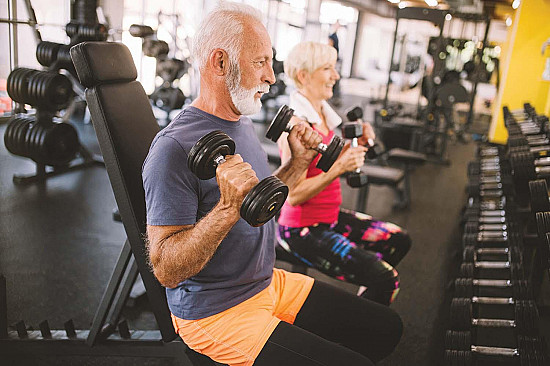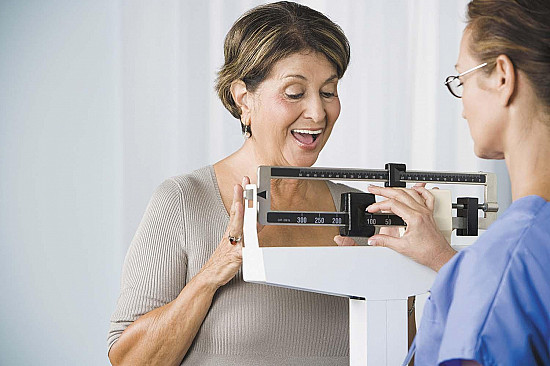Why exercise if I'm not losing weight?
Ask the doctor
 Q.
I've often tried to start a regular exercise program. But after a few weeks, I step on the scale and I haven't lost any weight. So, what's the point?
Q.
I've often tried to start a regular exercise program. But after a few weeks, I step on the scale and I haven't lost any weight. So, what's the point?
A. Many of my patients have asked me that question over the years. It takes consistent exercise to lose weight. But that's not the main benefit of exercise. Studies from Harvard and elsewhere have documented scores of other benefits.
Regular exercise (both aerobic and resistance) reduces your risk of the most common causes of premature death: heart disease, strokes, and many types of cancer, including cancers of the breast, lung, colon, esophagus, prostate, pancreas, liver, kidney, bladder, or endometrium (lining of the uterus), as well as myeloma and non-Hodgkin lymphoma. And that's just for openers.
Regular exercise also reduces your risk of dementia (including Alzheimer's disease), diabetes, depression, and anxiety. It improves your energy level, reduces the level of any chronic pain you might have, greatly improves the quality of your sleep, and even protects you against constipation. Regular exercise strengthens the lungs, reduces your risk of getting pneumonia from infections (like influenza or COVID-19), and reduces your risk of dying from pneumonia. Particularly in women, exercise reduces the risk of developing osteoporosis (thin bones) and the risk of fractures of the hip and other bones. It also decreases the likelihood that you will develop gallstones or kidney failure.
Finally, believe it or not, regular exercise seems to reduce a person's risk of developing addictive behaviors — like smoking, alcohol abuse, and drug abuse — and makes quitting those addictions more likely to be successful.
So, please don't think that the only reason to exercise regularly is weight loss. In fact, if you don't also control your calories, it's hard to lose weight just by exercising. That's because burning calories by exercising is harder than adding calories by eating. For example, moderate exercise burns about 400 to 500 calories an hour. So, two hours of moderate exercise would burn 1,000 calories — about the number of calories that are in a Big Mac meal. Does it take two hours to eat a Big Mac meal?
Nature designed the human body to be physically active. Yes, our bodies are not what they were when we were 20. But they still benefit enormously from regular exercise. And they let us know that by making us feel good from consistent workouts.
No pill ever invented — or likely to be invented — can give you as many health benefits as regular exercise. It doesn't have to be vigorous activity: just brisk walking (or the equivalent) for 150 minutes per week. You don't have to break a sweat, and it doesn't cost a dime. Don't give up on it.
Image: © Neustockimages/Getty Images
About the Author

Anthony L. Komaroff, MD, Editor in Chief, Harvard Health Letter; Editorial Advisory Board Member, Harvard Health Publishing
Disclaimer:
As a service to our readers, Harvard Health Publishing provides access to our library of archived content. Please note the date of last review or update on all articles.
No content on this site, regardless of date, should ever be used as a substitute for direct medical advice from your doctor or other qualified clinician.
















